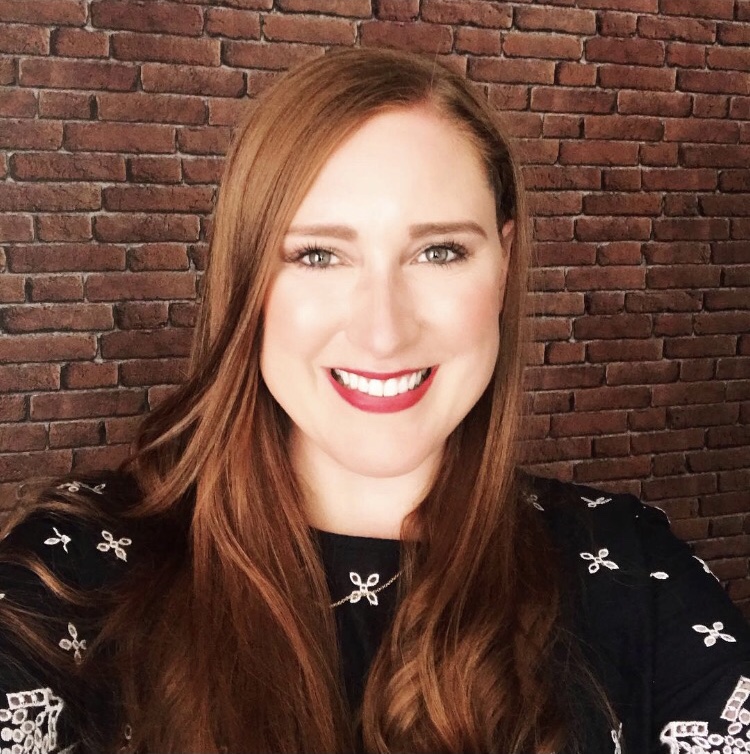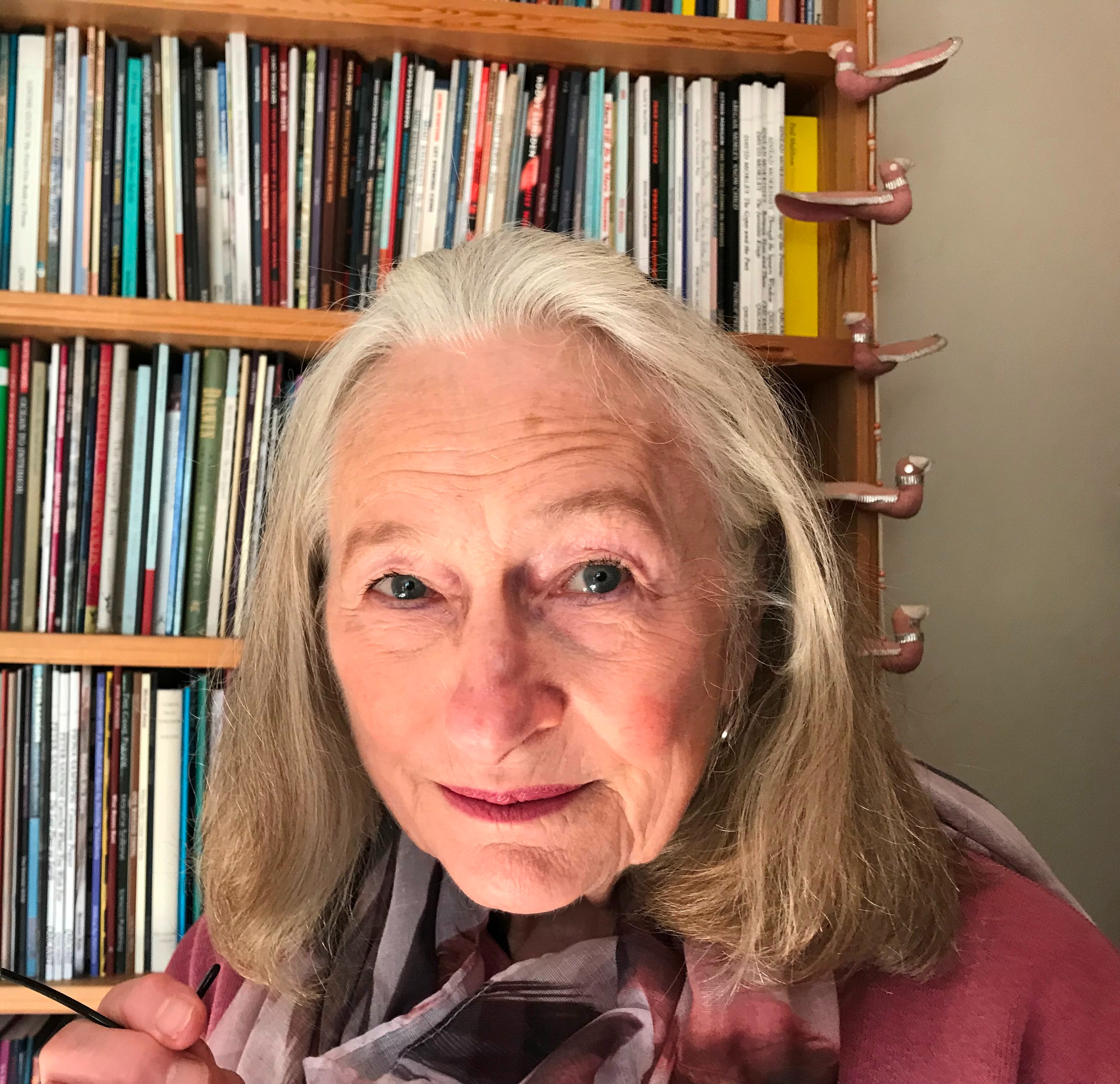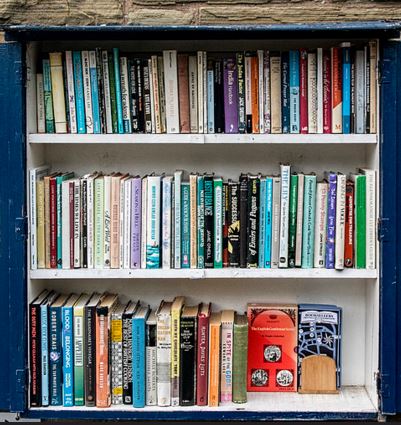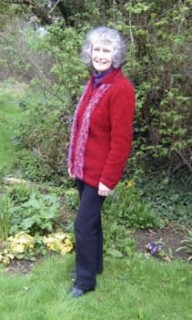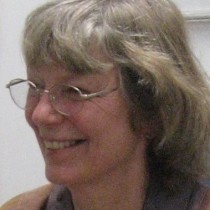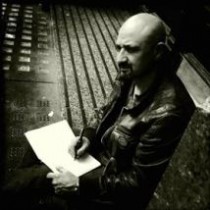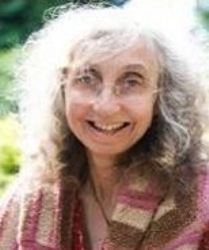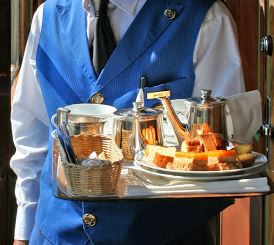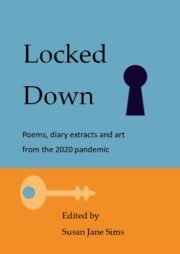This competition has been having a break. I will be relaunching soon.
Results from Poetry Space Competition 2022
—————————————————————————————————————————————————————————————————————————
I am pleased to announce that judging has been completed, our lovely judge and award winning poet, Rosie Jackson read all entries and really enjoyed the process.
Here are the top three along with a full list of shortlisted poems. Congratulations to everyone on the list and thankyou so much to all who supported this competition by sending in your poems. This is so much appreciated. Poetry Space is run for love of poetry, not for profit and any profits made help us to continue publishing new work and giving more poets the attention their work deserves. Moira Andrew’s long awaited Poet in the Kitchen is now with the printer, Kaye Lee’s debut pamphlet collection, A Gum Tree in a London Garden, came out at the end of October and several other books have been published in the last year including, Locked Down, an anthology of poems, diary extracts and artwork from the 2020 pandemic. None of it would be possible without your support.
First Prize
Wren
All morning she’s in and out of the neighbouring eaves,
serving hunger. Her crowd of mouths is riotous, indignant,
the little yellow alarms of their tongues going off, relentless.
Bruises for eyes, skin so thin you can see the faint
machinery under. Purple hearts and all that clockwork
and blue wire. I tire just watching her ferry back
the country slugs (dark as treacle, muscular),
the curling earthworms, new to blue air.
One blind chick at a time receives her, shuts
up for the span of a double gulp then opens
for further business. On it goes. She can’t weigh more
than a bag of air, and I haven’t seen her stop to quell
her hunger once in all these hours. This is how
they are, the mothers. Offering everything everywhere
first. My own mother lived on remainders. For years
I believed she loved the cooled and congealed best.
And the brown French Fancies. And the heels of bread.
And when she bathed in our grey water, still she answered
our red heads, repeating in sequence at the cracked door:
other pyjamas, a glass of milk and a fig biscuit, have
you seen my slipper socks / my Etch-a-Sketch/ my gym-kit,
Mum she’s taken it, and it’s mine! And all the foam long
gone. This is how I settle my wanting when it comes.
When every now and then I feel my cool rooms and sunlit
kitchen shrink to fit them, shrieking, sticky-handed ghosts
with names passed down – Florence, Frances, Olive, Jean –
all fuss at my knees and the cupcake spoon, a drama a minute,
and the days arranged around school runs and ballet classes,
and the evenings nit-combs and maths workbooks.
And I watch the little wren weave in and out of ivy, beak full
and beak empty, accosted by noise, and I cannot help
but marvel at her industry. And it’s pity, mostly, I feel
for her, and I bless her. I cannot acknowledge the envy.
Cheryl Pearson
I was absolutely delighted to hear that I had won first place in the Poetry Space competition – there were more than a few happy tears! It’s been a strange 18 months and at times writing has been difficult, so it was especially lovely for my poem to be recognised in such a way – particularly as the judge is a poet whose work I really admire. So thank you Rosie, and Poetry Space – I’m still on cloud nine!
Cheryl Pearson is the author of ‘Oysterlight’ (Pindrop Press) and ‘Menagerie’ (The Emma Press), which was the PBS Autumn Pamphlet Choice 2020. Her poems have featured or are forthcoming in journals such as Magma, Mslexia, The Guardian, and The Moth Magazine. She lives and writes in the Peak District National Park.
2nd Prize
Lute
Look at the shape of it – like a teardrop,
the depth, the back that’s called a shell,
the strings that are made of sheep’s gut.
Close cousin to the guitar, the lute
has a lighter sound. Once upon a time
it was the instrument; even the queen
had one, could play it. What if my father
had owned one, could play it, had brought it
to his high school English class, held it,
leaning against his desk like a rock star,
explained how it was hand-crafted
way over 400 years ago in France?
What if some tough kid had asked,
Is that what guitars looked like
in the olden days, and my father
had answered yes, and teased a pop tune
out of the sheep gut strings, and the kids
had thumped their desks and sung along?
Would we have stayed on another year?
Avoided the next new school, the next house,
the next neighbours, no friends? Instead
he tells a story of the lute player’s daughter
who preferred playing a tin pipe she’d bought
for tuppence in the market, said how she liked
music made of breath, not formed from fingers,
and the tough kid blew a raspberry, and my father
groaned, and the bell rang for lunch.
Wendy Klein
A wonderful surprise! I don’t enter many competitions anymore – pick and choose carefully, and this is the first time I have entered a Poetry Space competition. I always look closely at who is adjudicating, whether I know the adjudicator, their poetry, whether I admire them. Rosie Jackson ticks all those boxes. ‘Lute’ is a very personal poem, one of many I have written with my father in mind. He was a depressed secondary school English teacher who loved literature, but continually failed to engage his young pupils in that love. The result of this failure was that he was never confirmed in post (offered ‘tenure’ in US vernacular), so we led a nomadic existence as after each failure, he was forced to find another job elsewhere. If only he’d had a lute, been able to play it… maybe then. I am particularly pleased to have this poem chosen by Rosie for 2nd prize.
U.S. born Wendy Klein came to England in 1971. She has published three collections: ‘Cuba in the Blood’ (2009) and ‘Anything in Turquoise’ (2013), Cinnamon Press, ‘Mood Indigo’ (2016), Oversteps Books, and a Selected ‘Out of the Blue’ (2019), The High Window, and a pamphlet ‘Let Battle Commence’, based on letters from her great-grandfather, who served as a Confederate soldier in the U.S. Civil War (2020), Dempsey & Windle.
3rd Prize
In Italy
the waiters all speak English
but asking for my breakfast in Italian –
how a brain grows
learning another language!
It’s like the map I use, unfold
to find the cafe in the first place, strade
turned inside out, upside down,
now a streetwise pleated hat. This town
takes time, slowing it down,
speeding it up, I can’t tell, only that in the sun
I don’t clock each passing hour
and the sky’s blue as far as the eye can see.
I get ahead of myself –
in the cathedral you’d know exactly what to do,
what I’m looking at; be glad
I’m in a gallery
seeing colours differently,
like Bonnard from memory,
like Hockney, near Warter, those trees.
House sparrows airlift
focaccia from under the table
as a zucchero, each cube, carefully
uwrapped, sweetens an espresso. Sip it.
Knock it back in one. Either is fine.
Jeff Skinner
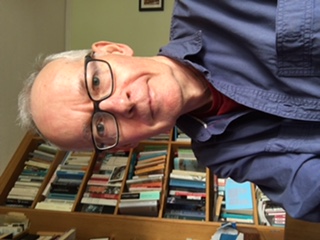
I’m really pleased to make ‘the podium. If it hadn’t been for a fellow-poet’s encouragement earlier this year, I may well have stopped writing. So a big thank-you to her, and to Rosie of course.
Jeff’s been published in a number of journals and competition anthologies. He has poems in the Fenland Poetry Journal and Poetry Salzburg in 2022.
Ist Prize
Wren – Cheryl Pearson
2nd Prize
Lute – Wendy Klein
3rd prize
In Italy – Jeff Skinner
Highly Commended
The Shape of Our Lives – Mary Anne Smith Sellen
The next day in the flat kitchen – Olivia Tuck
Commended
At a performance of Schumann’s violin concerto – Derek Sellen
The Drift – Ian Royce Chamberlain
Eating pomegranates for breakfast- Mary Gilonne
Lambs’ ears- Gill McEvoy
The fuzzy pelt is a garment without seams – Margaret Wilmott
Not numbers – Sue Kauth
Christina’s Other World- Wendy Klein
Ode to water – B.Anne Adriaens
Sweet peas – Susan Jordan
The other side of the fence – Zoe Howarth
Melt – Oz Hardwick
In the white gardens at Sissinghurst Castle – Mary Anne Smith Sellen
Seurat’s little girl – Roger Elkin
After our argument – Sharon Black
Imagining a river – Margaret Eddershaw
ROSIE JACKSON JUDGES REPORT
1st prize WREN
As soon as I read it, the winning poem ‘Wren’ flew to the top of the tree and never fell from its perch. It’s a magnificent poem, the single word title deceptively hides a richly layered and textured work, beautifully crafted into tercets and full of remarkable imagery. I love the way it weaves together finally observed detail of the mother wren feeding its young with unromanticised images and memories of the writer’s mother in a very specific historical moment, widening out into larger implications about how having children changes a life through unending demands, both emotional and physical. Different nuances of feeling are layered with realistic snapshots – heels of bread, grey bath water, fig biscuits, cupcake spoons (there has to be a lot of food in a poem of this subject!), conveying the relentless busy-ness of mothering. The final lines say so much, especially the last sentence, far-reaching and ambiguous in its meaning. But what is also remarkable is the tone of this poem. Even while saying how it was, how it is, for women as mothers, there is neither anger nor idealisation, just the implacable reality of how living beings – wrens, humans – have to find ways, often self-sacrificial ways, to nurture their offspring. The details of this poem resonate exactly with my memories of my own mother and I found it deeply moving as well as exquisitely written and shaped. I would be very proud to call this poem my own and I congratulate the poet’s skill, craft and voice.
2nd prize LUTE
Perhaps I have a hidden penchant for tercets and single word titles, for the second placed poem shared these qualities. ‘Lute’ takes a musical instrument and plays it for its symbolism in a story about class and family, through the poet imagining scenes from a father’s history. The imperative first word ‘look’ draws us in immediately, the quality of the lute is beautifully evoked, and six compelling stanzas elapse before we know the real meaning of the questions and the direction of the narrative. I loved the control of this, the gradual revelation of a troubled man, family and social class, so much is said so economically, and the symbolism is left to sit lightly, never over-laboured. A memorable poem with a confident tone, well done.
3rd Prize IN ITALY
‘In Italy’ is restrained, understated, elegant and beautifully crafted, yet with a wide emotional canvas underneath. There’s a sense the speaker is trying to come to terms with loss – the lost ‘you’ of the poem – and it doesn’t matter if they go fast or slow, have maps or not, they are still lost, in a new dimension where time hangs heavy. This is all achieved in very few words, less is more, the ‘you’ is gone, the brain has to learn a new language, a new way of being. I loved the sense of displacement, and the carefully arranged slightly broken stanzas, placed as neatly as the days.
Highly Commended
The 3 prize winners and the 2 Highly Commended are all poems about human relationships. The Shape of our Lives cleverly carves into the connection and disconnection between Barbara Hepworth and Ben Nicholson in language and form that is sparse, hollowing and cutting, like their art. The next day in the flat kitchen approaches sexual abuse from the angle of 5 women in different verses as they respond to the victim, herself unnamed. It’s visceral, immediate and convincing.
Commended
There is more art in some of the commended poems – Andrew Wyeth (whose painting Christina’s World I now see in a totally new way), Seurat, music by Schumann, and lots of gardens and flowers – Sissinghurt, lambs’ ears, sweet peas (with a difference) depicted with deft language. Eating Pomegranates take us to Italy again, Ode to water uses anaphora to remind us of the miracle of the water element, while Not Numbers is a strong but simple elegy for those we have lost to Covid. The Drift cleverly laments ageing. I loved the celebration of whales in The Fuzzy pelt poem, I could see them rising in the air and shared the sense of their magnetic tangibility. Melt is an intriguing conundrum of a prose poem, risking much. The Other Side of the Fence is a pared down heart wrenching image of a mother trying to regain access to her young child. Sometimes a title can be as intriguing as a poem, and the confidently long title ‘After our argument about men striding ahead of women being a symbol of patriarchy’ echoed through the list of things noticed afterwards, culminating in a beautiful metaphor of ‘the mist unhitching its skirts’.
The title, the first line, the last line, these are the all-important scaffolding for poems to hold up, and all these commended poems knew well how to stand.
In the remainder of the poems, there was much to admire. Some wonderful feats of imagination – being inside a postbox, reflecting on a fourposter bed. Some more ekphrastics, poems about loss and death, parents and children. But there was also emotion unlimited, angry poems that needed to find a better form, poems that started brilliantly then lost their audacity half way through, tired poems that ran out of steam.
I hope it’s clear from the shortlist that the poems that work best always go the extra mile, then more, in re-writjng, crafting, layering and reworking, till they seem effortless – or, as in one poem audaciously addressed to the ‘poetry judge’, – till they ‘jump like salmon to the surface.’ Thank you for my feast. Lots of salmon leaping here.
Poetry Space Competition 2021
This competition closed on September 30th and all entries will be read by Rosie Jackson.
ROSIE JACKSON is a prize-winning poet and creative writing tutor recently moved to Devon after many years in Frome. Widely published in journals and anthologies, her collections include What the Ground Holds (Poetry Salzburg, 2014), The Light Box (Cultured Llama, 2016), Two Girls and a Beehive: Poems about Stanley Spencer and Hilda Carline (co-written with Graham Burchell, Two Rivers Press, 2020) and Aloneness is a Many-headed Bird, co-written with Dawn Gorman, which won the Hedgehog Press dialogue competition 2019. Other prizes include 3rd prize Hippocrates 2020, 1st prize Poetry Space 2019, 1st prize Wells 2018, 2nd prize Torbay 2018, 1st prize Stanley Spencer Competition 2017. More details on her website www.rosiejackson.org.uk
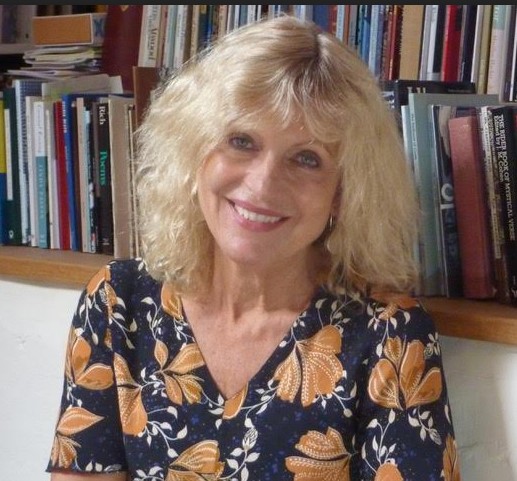
Prizes this year:
£500 for the winner
£250 for 2nd place
£100 for 3rd
Book prizes for seventeen shortlisted poets and for the top three prize winners. Complimentary copies of the prizewinners anthology for the top 20.
Rules for entering:
- Poems must be your own work and previously unpublished
- Poems must be 40 lines or less
- You must be 16 or over
- You must be willing to have shortlisted poems published in our prizewinners’ anthology
Poems can be sent by email to susan@poetryspace.co.uk or by post to Poetry Space Ltd, 2 North St, Beaminster, Dorset DT8 3DZ
Please don’t put your name on the poems but do include a cover sheet with your:
- full name
- pen name if different from above
- email address
- telephone number
- postal address
Please pay a £5 entry fee to enter one poem. Multiple entries are allowed.
Poetry Space subscribers can enter to poems for each £5 paid.
Rosie says:
I’m very excited to be invited to judge this year’s Poetry Space competition. I never cease to be amazed at how much poetry is happening right now, and there are so many stunning contemporary poets, I’m looking forward to some treats.
What will I be looking for? Well, I’ll know it when I see it, but something that IS contemporary in its voice even if timeless in its themes. I like poems that take risks, are urgent and intimate, both personal yet reaching beyond the personal, carefully crafted to the point of seeming effortless, poems that surprise me by putting unexpected things together. John McCullough writes: ‘A great poem is often born amid the energy created by the collision of two elements that never normally meet. Physics and Lucozade. Hairdryers and guilt.’ It’s the secret of the metaphysical poets, a play of metaphor and imagery that doesn’t indulge in wildness for its own sake, but does know how to avoid too much prosaic thought or abstraction.
And while I will hope for not too many poems on predictable themes, I will look for poems that capture the realities and textures of life. Poems that are neither over-written nor carelessly casual, poems that come from the soul, heart and imagination as much as the mind, and, very importantly, know how to stop with that just-right last line.
———————————————————————————————————————————————————————————————————————————-
Poetry Space Competition 2020 – FULL RESULTS
I have now contacted all the winning poets and you can now read the top three winning poems and some comments from our winners. Congratulations to all three who received prizes of £500, £250 and £100 respectively, and also our shortlisted poets. The poets have all chosen a book prize from the Poetry Space shop and I will send those shortly. The top 20 poems will be published in a prizewinners’ anthology in due course.
1st prize goes Fionn Creber for An Axe. 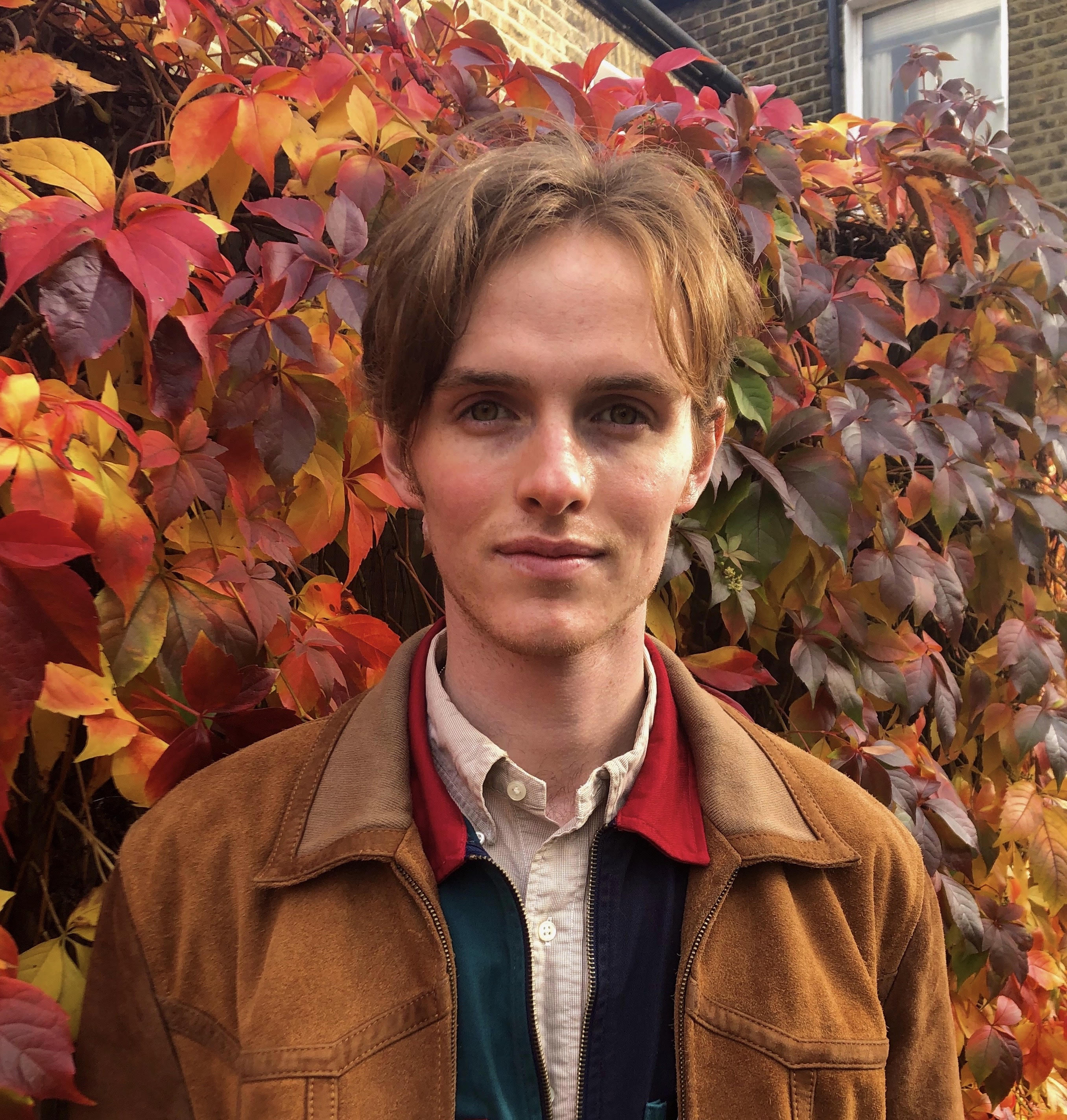
This is the first writing competition I’ve entered so I can’t stress how shocked and flattered I am to have won. Thank you to Bobby for seeing something in the poem, to Amy for her endless support and to those of you who read it and smile (or frown, I’m not fussy).
An Axe
I was thinking of taking an axe to the world.
An old axe, a good axe.
An axe that has known other hands than mine and marked them less.
An axe whose handle had worn past being smooth and was now chipped and flaking splinters into my hands.
I want to feel the weight of my decision in my shoulders and my elbows and my shattered
hands so that I know not to stop.
I want to know the cost when I’m done, and my hands can’t feel.
I want to look at them, bubbling and raw, a memory of skin and soft touches.
When I think I am done I will hang up the axe that isn’t mine and it can wait there alone and I
won’t look at it again.
When I am done and my axe is hung, I will look at the world around me, my beaten and broken world, and I will build a palace from the waste.
There’ll be better palaces later but I won’t see them, I will sit in a hall of mirrors made of pictures of me torn from time and I will not touch a single thing.
I will walk along the gallery naked under my robe of chain link fence and the fur of long dead animals that gasped in my arms as I told them they were good and kind and worth more than the world had to offer anymore.
I will sleep in the hollow of the broken chimney every night that I can and think about how my hands can’t trace faces in the memory of smoke.
The sun, chopped to pieces and stored in cages of shattered bronze, will warm me in the shade of its absence and when I die I want it to explode but it won’t.
I want the bronze to shred the air like shrapnel, desperate to devastate before it melts ahead of a world that’ll throb for less than a single, aching moment before it erupts.
I want to be gone and there be no memory of the earth, of the sun, of me, of you, of my
broken hands.
I want the axe to fade away from where it hangs and appear above the heads of distant civilisations.
Leave memory for the heavens, they know when to leave something alone.
Fionn Creber
2nd Prize: Gareth Roberts for Nihilist
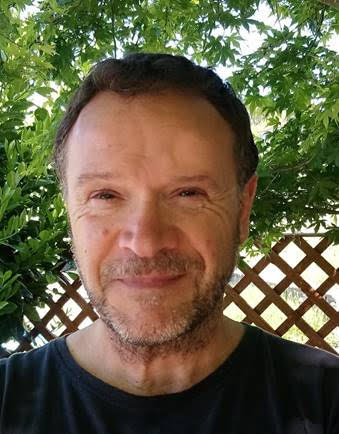
I am delighted that my poem Nihilist has been chosen for a prize in the 2020 Poetry Space Competition. This poem was motivated by an experience a while ago on the streets of London (Kensington High Street, I think). The pavements were overflowing with people, each in their separate purposes but still within and part of the common stream of society; except for one man alone, angrily and volubly debating some heated argument with himself. The stream of society parted around him, leaving him alone: an island; his own empty space with which to confront his demons. This poem is for him and all that are left to face their darknesses alone. I am struck by Bobby Parker’s comments in his Judge’s Report, particularly the sentence “There are lighthouses here, someone is always tending to the lamps…”. Yes: that is what poetry is for.
Nihilist
The last bomb that came was a quiet one,
a light ordnance device that rattled no windows,
blew down no walls, left no crater.
No blast or shockwave
ruffed the eager-ugly mouthy streets:
all eyes and feet.
Here, in the sunless duns, they felt nothing,
saw nothing. Just me:
I saw it coming, nosing silent
through years coughed up like litter.
Through twisted froth
of final, spent and bitter words
it came. A zero-perfect ballistic
homing in; my name on it.
I am a street of havoc; a ruined borough.
My mind is a rain of iron and fire,
my tongue choked on rubble.
My blood: ash. My guts
a spew of charred restraints and failed parts.
My brow is a search-light: blinding.
There are sirens.
I am cordoned off.
I am an exclusion zone.
Padded men poke me with long sticks
to see if I still tick. Children taunt
from the safety of ice-creams;
their mothers each an Isis
flooding with cold, dark water.
I am set, a grim attraction:
digi me in for posterity
in some further Sunday
or the broken ends of bus-shelters.
Call me a name –
if it helps.
Gareth Roberts
3rd Prize: Greg Smith for The Laughing Buddhas.
I am delighted to have received third prize in the Poetry Space competition. This is the first time I have won a prize for my poetry and gives me great encouragement and confidence in my writing.
The Laughing Buddhas
That foxglove bell jerks on the half-stuck door
however gingerly you enter. It disturbs
a quiet that is more than just no sound.
Everybody thinks in whispers
as in a cathedral. Those same hours
hurtling in the streets pass here
in one unbroken hush. There are more
aromas than the memory can hold:
tea tree, lavender, jasmine, Japanese magnolia.
Is there some answer in the carved
Teak room dividers, or the stillness
of the wind chimes in the indoor air?
In the window, melon-bellied Buddhas,
in a range of sizes, laugh together
at some shared two-thousand-year-old joke.
Among the onyx trinket boxes
and the soapstone elephants, a horse-brass Shiva,
dances at the centre of its five-inch universe.
In one corner lies the lifeless tiger of a wasp.
All day on the roundabout, cars
miss each-other in unending synchronicity.
Pedestrians stride along imagined corridors.
Elsewhere birds free-wheel and lit clouds
form or die away, each equally unique.
Greg Smith
Judge’s report
I think the best way for me to start this report for the Poetry Space competition 2020 should be to thank everyone who entered. In reading these poems, I found myself in a maelstrom of grief, pain and suffering that obviously cannot be compared to the lives lived behind them. There was humour too, and joy, but the overall feeling was one of longing for a happiness that often feels lost or too slippery to hold.
So to all who entered, I commend you for your bravery in committing to paper that which so many of us strive to keep hidden. Rest assured, the beauty and transcendence of your submissions not only overwhelmed me, it also taught me some valuable lessons in what it is to be human, and how we are to carry our heavy baggage of living into an increasingly uncertain future. Thank you, and please keep writing and sharing your wonderful work.
As for the prizewinners, I have to admit it was a tough call, made easier only by the manner of which my choices were made. By which I mean, no matter how technically brilliant or seemingly good a poem may be, the ultimate deciding factor will always be my own personal preference. And what can be easier than going with our instinct? Especially if that instinct has proven valuable in the past.
There was so much great work here to fall in love with, but in the end I had to stand by the poems that spoke to something in me that I barely understand, even though I trust it implicitly. I hope this gathering of poems helps in some way to give an example of the quality of writing that what was submitted and also the things that are currently influencing the common consciousness. Let these poems in. Let them heal, surprise and frighten us in equal measure. We are not alone. There are lighthouses here, someone is always tending to the lamps, and their stories are universal.
Bobby Parker, October 2020
1st: An Axe – Fionn Creber
2nd : Nihilist: Gareth Roberts
3rd: The Laughing Buddhas: Greg Smith
Highly Commended:
An Unexpected Bereavement: Fionn Creber
Moving Foster Homes Again, Yet I am Not Dead – Rosalie Alston
My Neighbour’s Brain- Marion Hobday
His Grandfather who Used to Address The Rain – Marion Hobday
Handiwork – Sharon Black
Choice Cuts – Colin Pink
Other shortlisted poems:
Neighbourhood Pyrotechnics – Lizzie Ballagher
Sitting Opposite the Wheelchair- Belinda Singleton
Fruit of her Womb- Naoise Gale
Bait – Gareth Roberts
Seeing Artemis- Tamsin Hopkins
Merdhil – Greg Smith
OCD- David Punter
In Praise of Zopiclone Alison Love
We all fall down – Simon Alderwick
Radioactive – Alison Love
Mum- Angie Butler
Feedback on the top three poems
First prize:
An Axe
This poem stayed with me the way a film or song goes round and round in my head until I’m almost mad with it. I read it over and over, which was my first indication that it was definitely going to end up in the top 20. I enjoyed reading it so much that the technical skill of its internal rhymes, repetition and imagery didn’t occur to me until much later. This, for me, is a very good sign. I fell in love with the voice first. The feeling it gave me, which at first was to put the poem down and start writing myself. As a reader and a writer, I don’t think it gets much better than that. To inspire and be inspired is what nourishes the ecosystem of art and creativity. Admiration for the architecture of the piece came afterwards. And it just kept giving. And it stunned me. This is a poem I know I will keep coming back to. I’m looking forward to reading more work by this poet in the future.
Second Prize:
Nihilist
Choosing the poems for second and third place was the most difficult part of judging this competition. Poems were chosen and taken away and put back again. This went on for a week or so. The apocalyptic effects of this particular poem appeared to me as fireworks on the page and echoed in my mind long after I had finished for the day and put the papers temporarily back on the shelf. An excellent piece, Nihilist spoke to me as darkness speaks, with lights passing through like emergency sirens in the night, and all the shapes and shadows in between.
Third Prize:
The Laughing Buddhas
After spending the last few weeks engaged with poetry that explored mental illness, addiction, death, disability and loneliness, The Laughing Buddhas blew a calm breeze through my soul at a time when the pain was becoming a little too much. I needed it, and what it communicated was akin to chilled, fresh water after drinking nothing but rain or shots of strong spirits. It is a poem that brought sounds and smells that soothed me at a time when everything else was a little too cacophonous. This poem is a room I’d like to sit and think in. A place to escape, take a moment to consider ourselves and appreciate the complexity of living and the simplicity of being.”
———————————————————————————————————————————————————————————————————————————-
Poetry Space Competition 2020 – closed now.
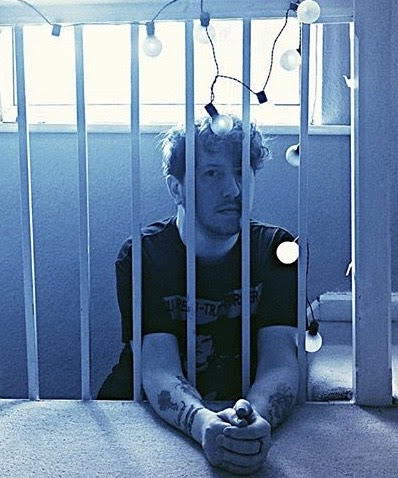
Bobby is looking forward to reading all your poems.
Prizes this year:
£500 for the winner
£250 for 2nd place
£100 for 3rd
Book prizes for seventeen shortlisted poets and for the top three prize winners. Complimentary copies of the prizewinners anthology for the top 20.
Rules for entering:
- Poems must be your own work and previously unpublished
- Poems must be 40 lines or less
- You must be 16 or over
- You must be willing to have shortlisted poems published in our prizewinners’ anthology
Poems can be sent by email to susan@poetryspace.co.uk or by post to Poetry Space Ltd, 2 North St, Beaminster, Dorset DT8 3DZ
Please don’t put your name on the poems but do include a cover sheet with your:
- full name
- pen name if different from above
- email address
- telephone number
- postal address
Please pay a £5 entry fee to enter one poem. Multiple entries are allowed.
Poetry Space subscribers can enter to poems for each £5 paid.
Visit online shop to pay for your entry
Poetry Space Competition 2019 – RESULTS
First of all a sincere thank you to every poet who entered Poetry Space Competition 2019.
Our judge for our 10th anniverasry poetry competition 2019 was Caroline Price
Caroline Price is a violinist, teacher and prize-winning poet living in Suffolk. She has published four collections, most recently Picnic on the rocks, with frog (Shoestring Press 2017) and is co-editor, with Myra Schneider, of an anthology of women’s poetry, Four Caves of the Heart (Second Light 2004). She has also published short fiction and in 2015 was runner-up for the Society of Authors’ Tom-Gallon award for a short story. She has worked as writer-in-residence in secondary schools in France and is an occasional tutor for the Poetry School.
The top three winning poems
Where bluebells are thickest
I lie down, look past worms of catkins
to a sky buoyant enough to persuade me
I’m floating on a salty sea and can never drown.
Thin drifts of cloud remind me of friends I’ve lost
this winter, the way each year bowls out another couple,
wickets toppling after too few sixes.
When I walk to the road again, my head’s leaking
birdsong. Cars are stalled behind a huge white horse,
summoned from the sun for some heavenly chariot.
The flanks are brushed to a gleam, the mane combed
as if every hair of its head were numbered.
The girl steering it has tiny wrists and fat-free thighs,
and she bobs like a cork, barely a teenager. If only,
I think, the soul could ride the body like this.
If only I were half mortal, half horse
of the apocalypse, able to stop men in their tracks
as she does, stop the whole world in its foolish tracks,
ride into an afternoon torn wide open.
Rosie Jackson – 1st Prize £500
‘I’m so shocked and delighted to discover I’ve won the Poetry Space competition. The poem was one of those that came easily, was simple and heartfelt, written after a walk I do often in my local woods. When I entered the comp, I worried it wasn’t sophisticated enough. But reading it again now, I see that it’s precisely the simplicity and depth of feeling that make it work. Utterly thrilled. Thank you Caroline and Sue!’ Rosie Jackson
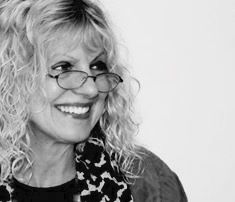
Based near Frome, Somerset, Rosie Jackson offers workshops in poetry and memoir writing in the UK and world-wide, as well as individual mentoring.
Rosie is widely published. Her books include The Glass Mother: A Memoir, The Light Box (Poetry), Mothers Who Leave, Fantasy: The Literature of Subversion and What the Ground Holds.
She has won many awards including 1st prize at Wells Poetry Festival 2018, and 1st prize in the Stanley Spencer Competition, Cookham 2017. Rosie collaborates with film maker Gordon McKerrow on poetry films.
Keeping Busy
September and they’re ready
nipple-soft and swollen,
heavy with a yeasty sweetness.
Corn-stubble crunches under her shoes,
scratches her ankles,
air I dry as toast, humming with heat.
She works the field, bluebottles
bright as scarab beetles
crawl over bloated berries, stumble away.
Thorns pull at her clothes as she forces her way
through bramble thickets,
nettle stings tingle her bare legs – she hardly notices.
Arms stained with juice, sticky and sun-weary,
she idles up the lane –
a trail, red as blood, dripping from bulging plastic bags.
She’ll make jam, give it to the hospital for the staff,
no need to keep any,
ask them if they could use baby-grows, new born size.
Jenna Plewes – 2nd Prize £250
That’s great news, Sue. I am delighted. Jenna Plewes
Jenna Plewes’ poems have been published in magazines in the UK and Canada and in several anthologies. Her first full collection Salt was published by IDP in 2013. Gifts, a collection of contemplative poetry published in 2014 is available on Amazon. Pull of the Earth is her second full collection with IDP. Against the Pull of Time is published by V.Press, 2018 She was highly commended in the Hastings International competition in 2012, highly commended in the Geoff Stevens memorial prize in 2013 and 2014, commended in the Four Corners International poetry competition and in the Second Light Poetry Competition in 2015 and 2017. In 2016 she was shortlisted in Poetry on the Lake, and Poetry Space competitions. She won 1st prize in the Settles Sessions Competition in 2017 and 3rd prize in the Barnet Poetry competition in 2018.
The Horse-Washing
Though what I remember is tail after chalky
white tail hanging over sheer
grey rock and, as they become rivers,
wanting to leap from the train to gape
at waters spitting and gasping their way
through the valley.
Norway vanishes
when I come upon two men and a horse
at the pause in a Hokusai waterfall.
And I can’t take my eyes off the scene:
those taut white runlets edged with blue,
their unstoppable descent, the horse
with his head to one side, expression
quizzical, as if he is overseeing
the half-naked men while they scrub,
scrub his back and flank.
Nearby the fall
splits again and jams giant fork tines
into the stream below. Nothing is at rest:
sweat is pouring from the labourers’ bodies,
the bossy animal keeps swivelling
his neck, spray is scattering dots
over black jags of rock, creating
a night sky that trembles with stars –
even the bushes are thrusting roots
into the mountain’s steep sides,
and the omnipotent waters are roaring
in triumph: movement is everything.
Myra Schneider
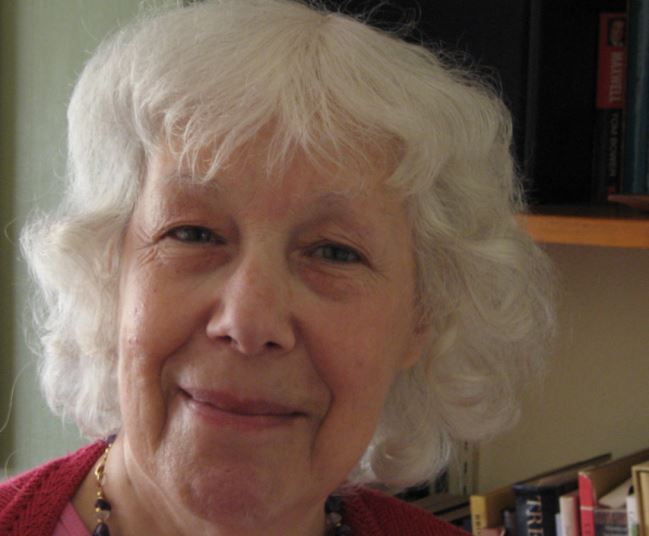
Myra Schneider’s first poetry collection was published in 1984 by John Killick who had just started the Littlewood Press in Yorkshire. Since then she has published nine collection of poetry, the latest being Lifting the Sky (Ward Wood Publishing). Since the late 1980s Myra has tutored poetry courses and groups and run or co-run one-off workshops all over the country and in Ireland and Normandy. She has also tutored for The Poetry School. She was shortlisted for a Forward prize in 2007. Her work has appeared in a large number of anthologies and been broadcast on BBC Radio 4 in Poetry Please. She is currently a consultant to the Second Light Network of women poets founded Dilys Wood in the late 1990s. She also writes reviews and articles for their twice-yearly magazine for women poets, ARTEMIS poetry and occasionally for other magazines.
I rarely enter poetry competitions but I wanted to support The Poetry Space which does much to encourage poets and poetry and especially this year which is a special anniversary. I was surprised and delighted to win a prize. Earlier this year I became excited by the idea of energy, its importance in life and it’s importance in writing so I began to explore the idea in very different ways. The Horse-Washing is one of them. Myra Schneider
Full results list
All poets on this list will receive their choice of a book from the Poetry Space shop as well as a complimentary copy of the prizewinners’ anthology when it is published.
1st Prize:
Where bluebells are thickest Rosie Jackson
2nd Prize:
Keeping Busy Jenna Plewes
3rd Prize:
The Horse-washing Myra Schneider
Highly Commended:
Rubato Beliz Mackenzie
broken haiku Lizzie Ballagher
He Gave Me Gladioli Isobel Shirlaw
The night of the peacocks L.A. Watts
Commended:
Iktsuarpok Eleni Cay
In the Presence of a Hawk Ian Royce Chamberlain
Oak Tree Years Deborah Harvey
The Bone Diviner Sue Davies
Song Scott Elder
A stitch in time Julie Burke
Treading Lightly Claudia Court
Tea with Henry Diane Jackman
Joints Julia D. McGuinness
Last Appointment at the Vet Louise Wilford
Our hoedown had ended Robin Muers
Normally we would have 17 runners up however two poets withdrew their entries after the judging which is disappointing as we could have awarded prizes for two more poems.
Judge’s Report
It’s always an exciting moment, as a judge, when you open that box of poems for the first time and start reading, knowing you’re about to be entertained by a wealth of subjects and taken into who knows how many different worlds. And this year’s Competition didn’t disappoint. An entry of over 200 poems reflected a whole range of preoccupations, from concerns about political, social and environmental issues through poems inspired by art, literature and individual people to very personal responses to experiences of grief, bereavement, illness and ageing. The voices ranged from formal and literary to thoroughly contemporary; there was philosophy, satire and humour; there were examples of most poetic forms as well as plenty of poems written in free or experimental verse. Each entry without fail demonstrated a desire to engage the reader and convey human emotions.
My task was to select twenty poems. So what was I was looking for, when I started to separate from the pile those poems that might be part of the final twenty?
I was looking for a voice which stayed consistent and convincingly matched its subject. Also, evidence of craft: how to present the material in the most effective way. And ideally, an ending that opened the poem out, that took me somewhere unexpected. I wanted to feel compelled to reread the poem – perhaps in a new light – and ultimately I wanted the sense that I was experiencing the writer’s experience as if it were my own.
I looked for light and air in a poem; despite the great care that had obviously been taken in many cases to find interesting words and descriptions, the result was sometimes so dense and richly ‘poetic’ that it overwhelmed the subject and pushed the reader away. I often wanted to say: beware cliché, the over-familiar image… A good poem has to surprise; and specific concrete details are so much more effective and convincing than generalisations, which the reader tends to gloss over. Rhyme and form very much have a place in contemporary poetry, and I enjoyed reading the many formal poems – but less so when the constraints of the form had been allowed to distort the syntax. As a final point, many poems had distracting typographical errors; a quick proof-read before submitting is always worthwhile.
I read and read again. It wasn’t too hard to whittle my pile of possibles down to forty but then it became more difficult. Some poems which had struck me strongly at an earlier stage were put aside now because they didn’t hang together quite coherently enough… I had to favour poems which worked as a whole experience even if they contained flaws.
And ultimately my choices had to be subjective: what spoke to me. I’ve selected poems that lingered in my mind – because of their subject, or through particularly haunting images, or a perfect ending… There is something about all these poems that held my attention and made me want to reread them for the pleasure of taking in that phrase, that image, that idea… A little magic happens for me in all these poems.
From my twenty, a handful kept rising ‘to the top’, and I knew that these would contain the prize-winners. Eventually I knew that there were seven that I wanted at least to highly commend – but only three could win a prize. And although I’d imagined that this final stage would be the most challenging, in fact I found that my three prize-winners were clear to me and had been for some time.
3rd prize: THE HORSE-WASHING
This poem has a striking title and an arresting opening image: the ‘chalky white tails’ of water, so satisfyingly reinforced by the real horse later. The opening grammatical device (“Though what I remember is…”) hooks the reader straight away and compels us to read on. The images and thoughts seem to evolve as we read – we are ‘there’, looking through the writer’s eyes. This is an extraordinarily immediate poem: we can see, feel and hear the landscape and scene. The writing – the choice of language and line breaks – is very assured and the energy beautifully sustained, culminating in an ending which feels at the same time surprising and absolutely right.
2nd prize: KEEPING BUSY
To start with, this poem doesn’t jostle for attention, with its gentle pace and familiar pastoral scenes. But when we reach the end and realise what the poem is about, the clear, unfussy language seems absolutely justified: it serves to underline the emotion that is being suppressed. The tone is perfectly pitched – objective yet full of latent feeling and energy – and perfectly sustained. The images have been carefully chosen throughout to chime with the subject, and allow us to recognise how the ‘she’ of the poem, despite her efforts to distract herself, is unable to avoid seeing her personal tragedy reflected in everything around her. The last line makes sense of the title – and immediately we are drawn to re-reading, in a different light.
1st: WHERE BLUEBELLS ARE THICKEST
I love the easy, unforced opening of this poem: we’re taken straight into the heart of the experience; it is immediately physical and real. We read the ‘I’ of the poem as ourselves right from the start: it is we who are lying among bluebells, looking up through catkins at the sky above. Each thought follows on naturally from the last, and is pin-pointed by an interesting image or metaphor. The writing is succinct; short sentences move the poem on, with only the important things being said. The balance of concrete physical details and philosophical musings feels absolutely right. The vision of the huge horse blocking the traffic, and its young rider, is memorable. And the way in which the writer reacts is unexpected and original: their wish – which could so easily be our wish – is stated simply and without fuss and is all the more poignant for it. Throughout, the language and phrasing are perfectly judged and innately musical. This is a poem which is satisfying on all levels and really does live on in the mind.
—————————————————————————————————————————————————–
Poetry Space Competition Results 2018
1st Prize
The Washing Machine – Pamela Coren
Its creamy benignity has the comfort
of background processes, reliable rituals.
Feed it, and round the house you hear
its bumble-dumble-dum, its whizz and whirr,
and under the stop-start plumbing
a suck and guzzle, little flat splashes.
It is undecided which way to turn,
but serves without comment. Takes your smells,
runs them out. Calms your clothy troubles.
Not baptism, just renewal, a low ablution.
If all else fails in the day, if you feel nothing,
you did the washing. When you say this
it will not insist on its part, but sit quiet,
its drying mouth making an O of relief,
a factory hand clocked off, snap tin empty.
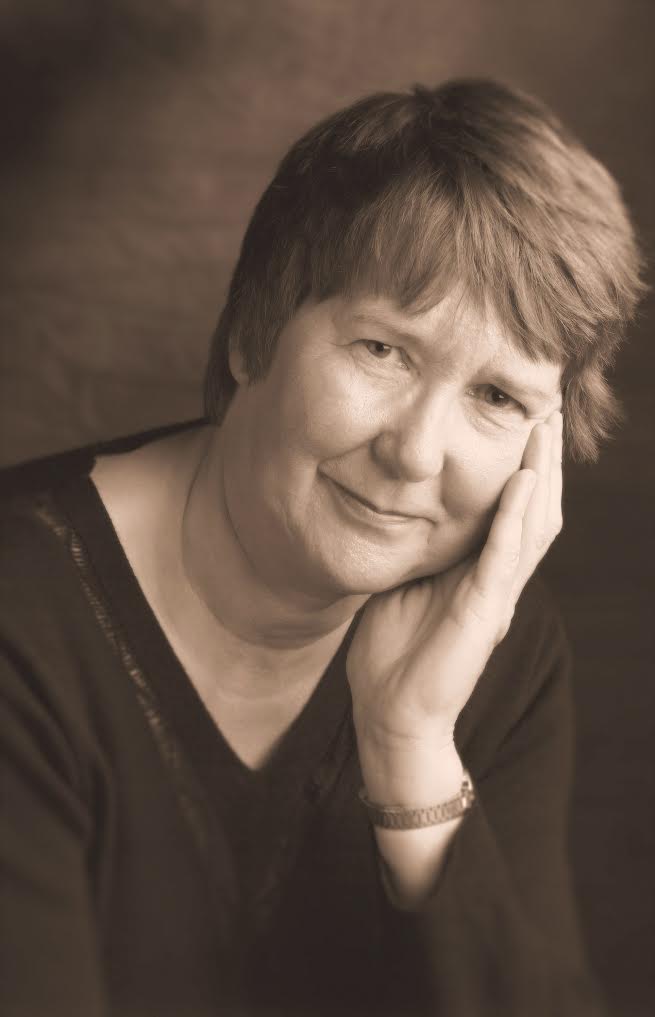
Pamela Coren
Pamela Coren was born in Rochdale, studied at the Universities f East Anglia and Kings’ College London, and went on to teach Medieval and Renaissance Literature at The University of Leicester. She has published academic work on Spenser, Sidney, Donne, lutesong, Gurney, Hopkins and Bunting. as a poet she has published in many magazines, had poems placed in a dozen competitions, and has one full collection The Blackbird Inspector published by Laurel Books in 2016. She is currently studying to translate the lyrics of the twelfth century Chinese woman poet, Li Ching-chao. She is married and lives in Sedburgh, Cumbria.
Pamela’s reaction to winning:
I’m very pleased to have won this year’s competition, as I’ve been more or less out of action since I moved to Cumbria. I’d been knocked off my work-balance by the visual overload of the Western Dales, the richness of the green life at my doorstep. I shook myself out of it at the beginning of this year, and determined to ‘do something every month – submit poems to a magazine or enter a competition. And so far its been great, and the publications are coming in again. Poetry Space is a friendly organisation with an open reach, refreshingly free of glitz and fads. So thank you all for the opportunity.
2nd Prize
Reading Henry James in Hospital – Carole Bromley
What Maisie Knew. I haven’t read it
for fifty years. I knew nothing then,
only the rhythm of his prose,
that Maisie was the centre of consciousness
that I would need to sit up late
to finish it before the tutorial,
swigging from a tooth mug
the port I stole from formal dinner.
For me the book will always taste
of peppermint and port and the summer of love.
I turn the pages with my cannula’d hand,
wander away from Sharon glued to Corrie,
from Jean flipping through Take a Break
from Joan’s painful voyage to the toilet.
‘I say, I say, do look out’, Sir Claude
quite amiably protested. Sister trips
over the zimmer Jean parked by my bed,
tells me not to keep my frame there
I do not have a frame, I protest.
Jean looks up from her article, Yet.
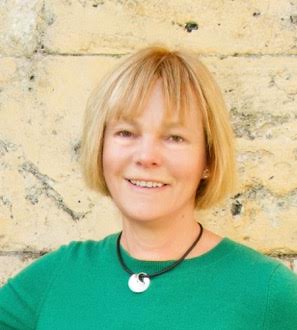
Carole Bromley
Carole Bromley lives in York where she is the Stanza rep and runs poetry surgeries for the Poetry Society. Winner of many prizes, she has three
collections from Smith/Doorstop: A Guided Tour of the Ice House, The Stonegate Devil and, most recently, a collection for children, Blast Off!
Carole’s reaction to the news that her poem had won second prize.
I was delighted when Sue emailed me to tell me I had been awarded second prize. I have been writing a sequence of poems recently about a stay in hospital and have just started sending them out so it was very nice to get this feedback from Gill McEvoy, a poet whose opinion I value.
3rd Prize
Tool Setter – Michael Docker
The setter’s right hand has no fingers.
He uses it to club steel plates
into place, catch scrap slivers
like an angler catches fish.
The thick skin
On the old scars tears,
Bleeds, but he doesn’t feel
Anything.
The setter’s words have no finesse.
He uses them to say what he means:
‘Screwdriver’, ‘Maintainence’..
Like a river over a weir
Mending and making flows around
Him. He sets and checks
Everything.
The setter’s days have no finish.
He uses them to catch money
For a future seen in
His dreams, where scars and tears
Are healed by a river, by an angler’s
Silence,
by slivered fish; where he won’t have to say
Anything.
Highly commended:
From the spot where we found a dead Northern Emerald – Susan E Holland
Hemiola – Jane Newberry
Commended:
Stefan’s Confession – Cathy Whittaker
Parma Violets – Pippa Little
The Loneliest Whale – Cheryl Pearson
Hope – Julia D. McGuinness
From a layby behind the dunes – Susan E. Holland
On your way to somewhere else – Cathy Whittaker
Erasing the future – Claire Cileman
Why can we not stay silent like the trees – Anna Saunders
Pronouns – Margaret Beston
Bells – Helen Rear
Hearts and Bones – Gillioan Lambert
Than to Arrive – Aidan Baker
Requiem – Pamela Coren
A man rakes ash from an oven with a shovel – Sally Davis
Bellows – Tia Cole
In the architect’s Garden – Jeff Skinner
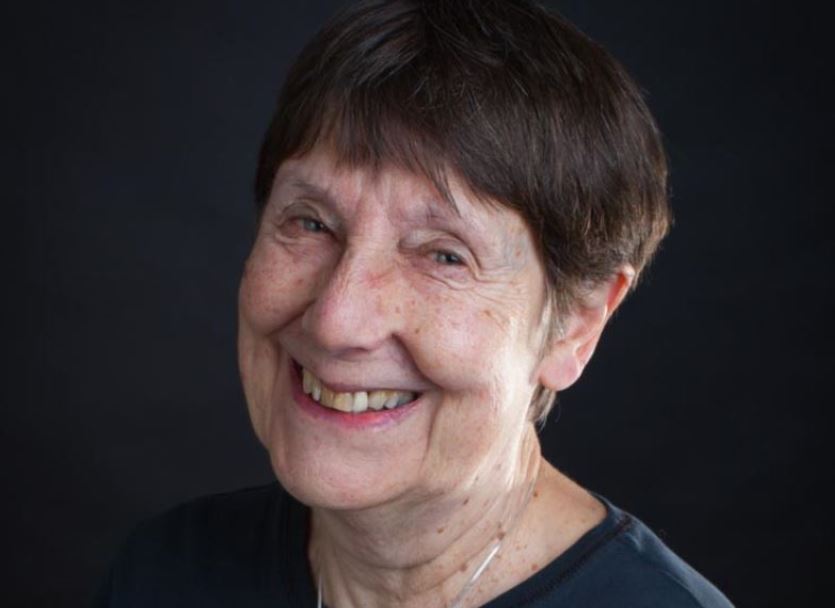
Poetry Space Competition 2018 judge, Gill McEvoy
Judge’s Comments
You cannot hope to read through an entire batch of competition entries one after the other so my method is to divide the poems into piles of 20 and lay these piles round the edge of my dining table and work my way through, pile by pile, reading each poem twice and reading aloud the ‘possibles’. These then go into a pile in the middle of the table to make the
longlist, 60 poems on this occasion. I divided these into piles of 10, repeated the procedure and got a shortlist of 30 poems. Further piles, of 5 this time, and I reluctantly discarded 10 poems. Then the hard job of deciding on the order of merit of these 20 permitted poems. This meant a great deal of re-reading and reading aloud, but I have to say I found it very enjoyable and managed to reach a decision.
Forests, single trees, poems to individual flowers, falcons, candles, relationships, and machinery were among the subjects revealed in this batch of competition entries. A wonderfully mixed bag! I want to say a sincere thank you to all of you who entered; it gave me great pleasure to read your poems and also some degree of heartbreak when I came to choose the winners and commended since so many poems almost made it to the short list.
But there can only be one winner and the extraordinary poem about the washing-machine really stood out both for its onomatopoeia and its aural loveliness when I read it aloud. In reading the short-listed poems aloud I was sorry to find that some of the poems looked good on the page but didn’t succeed when read out loud.
Thus the second prize went to Reading Henry James in Hospital which sounded satisfyingly rhythmic, had a wonderful contrast between youth and old age, plus a chilling final word.
Third Prize went to Tool Setter which I found a very touching poem about the monotony and implied noise of the work described, compared with the longed-for peacefulness of angling and the relief of silence.
Warm congratulations to the winners and all the commended poets. And to everyone else, keep writing, keep reading poetry, and keep entering competitions – you never know when it will be your turn to win.
Gill McEvoy 2018
————————————————————————————————————————————————————————————————–
Poetry Space Competition 2018 is currently being judged by Gill McEvoy
Winners will be announced in September.
Poetry Space Competition, 2017
Winning Poems
1st prize: Bumping into John Lennon – Carole Bromley
2nd prize: Saltburn – Carole Bromley
3rd prize: Around the Edges – Eileen Carney Hulme
Commended Poems
Editing – Ama Bolton
Rebellion – Sue Wallace -Shaddad
After the flood – Liz Byrne
Navy blue sling-backs – Liz Byrne
Loose Thread – Maurice Franseschi
Moving On! – Angie Butler
Something about the way you named trees – Eileen Carney Hulme
Tumour – Anthony Watts
Disputation – Christopher Grogan
On your mind – Angie Butler
The Natural – Keith Hutson
Not As Planned – Dorothy Baird
I give up, I tell – Andrew Soye
Becoming a Sliver Moon – Carolyn O’Connell
CODES OF BEING – Greta Ross
Almost – Moira Andrew
Conversation – William Dixon
Judge’s Report
Judging the Poetry Space Competition, 2017, was indeed a pleasure – and a challenge. After reading all the poems at least twice, initially, I divided them into three piles. After further readings, certain poems from the middle pile fought to join the first pile and sadly, some poems from that pile had to give way – a sort of literary cross-fertilization starting to take place! However, it must be said, that the winning three poems and, indeed, most of the listed commended poems held their position throughout the judging process. That said, it was very difficult, at times, to leave certain poems off the commended list that had singular virtues of their own.
I was also pleased to notice that the winning three poems, especially, displayed the qualities I was hoping to see and which I outlined in my pre-competition address. However, all the poems entered were worthy attempts. Many of them powerfully articulating universal themes of love and loss, tragedy and comedy. There were also poems that raged against the status quo and berated the establishment wonderfully. Perhaps the difference between the twenty poems selected and the ones that didn’t make the cut, so to speak, was that with the former poems more had been done to articulate, succinctly and economically, their chosen subject, comprising detail powerfully through individual form and conceit to deliver the poem successfully.
I offer my warmest congratulations to the three winners, the seventeen commended poets and, indeed, all who entered this year’s competition.
Mike Di Placido
Here are the top three winning poems for you to enjoy.
Bumping into John Lennon
The signature specs had gone,
he had that myopic, sore-eyed peer
all contact-lens wearers have.
He’d also ditched the white robes
and had a crew cut. I bought him a drink
and I think it was a relief to talk.
He told me Yoko had become a bit much,
that he couldn’t keep up all that showering.
She got the money. He started again,
took a City and Guilds in woodwork,
started a business doing sash windows.
He showed me the scar. A flesh wound.
He had an allotment, loved cycling,
would set off every Sunday at 5 a.m.
in fluorescent lycra.
Once or twice he crept into the back
of Macca’s concerts but, to be honest,
couldn’t take the hair dye, the terrible lyrics.
The last time I saw him
he was up a ladder fixing a pane,
whistling Maxwell’s Silver Hammer.
Carole Bromley
1st prize
Saltburn
August Bank Holiday and Elijah
wants to fly his kite, a red and yellow bird.
Plenty of wind and he soon gets the hang.
Run, says his dad, keep running
and he does. Running, running, afraid to stop,
towards Redcar and the steel works,
towards the town where his great great grandad
built the whole High Street,
and lived at no 129 from where
you could cut through to the beach
carrying a bucket for sea-coal.
But Elijah knows nothing of this.
To him, intent on keeping his kite aloft,
there’s only this running, running
away from the pier and the cliff lift
and the flapping windbreak,
away from the candy floss and ice cream,
away from the day trippers
towards the still winding gear
on his skinny, sparrow’s legs,
the great bird casting its shadow
over the long, ribbed sands.
Carole Bromley
2nd prize

Around the Edges
We name the pain as clouds, reference
good and bad days. I arrive with a DVD
and chocolate eclairs, tell you there
are swans in the sky, your response
nimbostratus, nothing fluffy about that.
We take the eclairs and you shuffle to
the coffee machine, longing for air, a soft
sea breeze, a curling cirrus. We settle
to watch Truly, Madly Deeply, laugh at
cloud-faces and dancing wooden spoons.
Before the ghosts depart you are asleep.
The doctor appears and I step out of
the room with the fragility of rain.
Eileen Carney Hulme
3rd prize
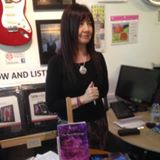 Eileen Carney Hulme’s third collection of poetry, The Stone Messenger, was published by Indigo Dreams in 2015. She has been a winner in several competitions and her poems have appeared in many magazines, anthologies and internet poetry websites. She had a poem set to music by Mark Keane award winning director of Music at Tuam Cathedral, Co Galway and this was performed at The Cork International Choral Festival. She has two poems transcribed on to wall space in The Nicholson Art Gallery in Forres, Scotland and she was also their first Poet in Residence running various poetry events.
Eileen Carney Hulme’s third collection of poetry, The Stone Messenger, was published by Indigo Dreams in 2015. She has been a winner in several competitions and her poems have appeared in many magazines, anthologies and internet poetry websites. She had a poem set to music by Mark Keane award winning director of Music at Tuam Cathedral, Co Galway and this was performed at The Cork International Choral Festival. She has two poems transcribed on to wall space in The Nicholson Art Gallery in Forres, Scotland and she was also their first Poet in Residence running various poetry events.
I was thrilled when Sue phoned to say I’d been placed and commended in this year’s competition. I’m grateful for all her hard work organising it and a big thank you to Mike Di Placido for choosing two of my poems, it’s truly heartening.
————————————————————————————————————————————————————————————————-
Poetry Space Competition – 2017
I am delighted to announce that our judge for the next competition will be Mike Di Placido.
The competition will open for entries on 20th November and remain open until the deadline of June 30th, 2017.
The competition is in its 8th year and there will be prizes of £250, £100 and £50 for the top 3, along with publication of the winning and commended poems (20 in all) in the prize winners’ anthology.
It is just £5, to enter a single poem on any theme. Friends of Poetry Space ( ie supporters who pay a small yearly subscription to support our work ) can enter 2 poems for £5. There is no limit on entry but no poet can win more than one cash prize.
Entries accepted from anywhere in the world. Poems must 40 lines or less and all poems must be previously unpublished.
No entry form required. Simply pay online by PayPal or send cheque ( payable to Poetry Space Ltd) . Or if you are in the UK I can take card payments over the telephone.
Then send your entries as a word attachment to susan@poetryspace.co.uk adding a cover sheet with all the poem titles and your full contact details: name, address, email address and telephone number. Please do not put names on the entries.
If you prefer to send poems by post the address is:
21 Davis Close
Barrs Court
Bristol
BS30 7BU

Short Biography:
Mike Di Placido graduated with an MA in Poetry from Huddersfield University in 2000. He has since had two collections of poetry published: Theatre of Dreams (Smith/Doorstop, 2009) and A Sixty Watt Las Vegas (Valley Press, 2014). His work has appeared in The Rialto, Pennine Platform and The North (where he has also reviewed poetry), and anthologies by Templar Poetry, Valley Press and Live Canon’s recent 154 – a response by contemporary poets to Shakespeare’s sonnets. He has read at Manchester, Wakefield, Bridlington and Scarborough Literary Festivals, and a youtube clip of him reading his poem ‘Scarborough Castle’, at the launch of A Sixty Watt Las Vegas, can be viewed online.
Mike was shortlisted for The Bridport Prize, in 2010, and is among the current winners of The Poetry Business’s 2015 Yorkshire Poetry Prize, judged by Billy Collins. In 2010, he was the sole judge in The Poetry Business’s World Cup Poetry Competition. His poems have been broadcast on British and European Radio and translated into German and Romanian by the web magazine PoetryPF. His poems also feature in a CD entitled Scarborough in Verse (Stephen Joseph Theatre, Oxford Playhouse and Live Canon, 2014).
As well as working on a tribute to Ted Hughes, Mike is currently engaged on other projects, including a poem and film sequence on Scarborough’s literary, historical and cultural legacy; an expanded account of his ‘magical trial’ at Manchester United in 1970; and a verse play, centred on the malevolent dragon of Old Norse and Germanic myth, legend and literature, entitled: Delivering the Dragon Stone.
———————————————————————————————————————–
What will I be looking for in the poems entered for this year’s competition? Well, perversely, I’d like to approach the question in a slightly differently way and ask, instead, what will the outstanding poems activate in me? Same thing, perhaps, but this slant gives the energy and the power to what will prove to be the outstanding poems, I think. My attention will be held – whatever the poem’s length or form – and I will be taken with the freshness of the writing – the words, images and ideas – which will articulate something important to the writer, something they have needed to express and convey. There will be a unique-ness in the strongest poems and a fidelity to subject matter – whether humorous or serious – and a demand for them to be re-read. And re-read. They will stay with me.
Not all our attempts in writing our poems work as well as we would wish, of course, but I like to think we do our best with them before we send them out into the world – that we care about them and wish them well. They have a lot to do: transmitting their messages out there on their own.
I hope you enjoy the whole process of writing and drafting. Good luck with your submissions! I ‘m looking forward to reading them all.
Mike Di Placido
Poetry Space Competition 2016 – results
First of all a big thank you for Myra Schneider for spending a couple of weeks of her summer with her head in poems submitted to Poetry Space Competition, and a sincere thank you to everyone who submitted poems. We had 249 entries and Myra read them all. All the top twenty poems will be published in a prize winners’ anthology hopefully before Christmas.
PLEASE NOTE THAT COMMENDED POEMS ARE NOT IN ORDER OF MERIT. THE PREVIOUS NOTICE WAS MY MISTAKE.
1st prize Poppies – Isobel Thrilling
2nd prize Panther – Shirley Wright
3rd prize Open air opera – Caroline Price
Please scroll down below the commended poets to read the top three poems and find out a bit about the winners. The three will receive prizes of £250, £100 and £50 respectively.
Congratulations to Isobel, Shirley and Caroline and to the poets below.
Commended poems:
The Murder of Anne Cluysenaar by her Step-Son, November 2014 – Dilys Wood
High Wire Wedding – Jenna Plewes
To Cornwall – Lizzie Ballagher
Ruby of the Sky – Kate Dempsey
Three Piece Suite – Rachael Clyne
Seaside Soap – Di Coffey
Burrs – Tony Hendry
Technophobia – Tony Hendry
The Tsarina at Tobolsk December 1917 – Sheila Jacob
The Social Worker – Isobel Thrilling
To the Writers of Novels – Isobel Thrilling
Paris Church -Kate Foley
Matryoskhka Factory – Victoria Gatehouse
Bombweed -Victoria Gatehouse
Sky to Sea – Rachel Plummer
Frances Dreams Up The Fairies – Victoria Gatehouse
Life story in eight sentences – Diane Jackman
Ist Prize
Poppies
They have spread to the fence:
big, scarlet vanes like grounded
Jurassic moths,
Low buzz
from thick, black pollen
earthed in the tough,
green nets of Essex grasses.
Gift from my father:
petals as big as my hand grow
a red to depth-charge
the heart
break open the psyche
and now,
this sintering
of the light when he was dead.
Isobel Thrilling
Isobel Thrilling was born in Suffolk, and brought up in a mining village in the north-east of England; she read English at Hull University and spent many years as Head of Service for Teaching English as a Second Language in a London borough. She first started writing after eye-operations that saved her sight. She is married, with a son, a daughter and two grandchildren. She has been widely published in magazines and newspapers, and her work has been included in many anthologies from publishers such as O.U.P, Longman, Hodder Headline and Macmillan. Her poems have been broadcast on BBC Television, ITV; and BBC Radio 3 and 4.
Hearing this news was like a blast of sun on a grey, lumpy day, as if an evening primrose suddenly lit up the dark. I felt supported and my work appreciated. Thank you for all the work you put in to organising the competition.
Isobel Thrilling
2nd Prize
Panther
He has sucked the light
from the stars,
swallowed day and night,
tucked the moon
into a velvet pelt
so thick I struggle to breathe.
Matt black has never felt
more like swimming in soot
fathoms deep as he
paces the lengthy of bars
there to protect me.
I would tear them down
If I could, replant
the Amazon and howl
like a baboon. But I can’t
conjure the jungle’s roar,
the covenant of wild and real.
Instead, I watch him circle,
take his photo, flinch as I feel
his glance graze my skin.
Shirley Wright
Shirley Wright is a regular member of Bristol’s Poetry Can and Random Women Poets and also The Bath Poetry Cafe. Her poems have appeared in various magazines and she has won prizes at. for example the Wells and Teigmouth Poetry Festivals. Her first poetry collection, The Last Green Field, came out in 2013 with Indigo Dreams Publishing and her second, Sticks and Stones will be published next year, also with IDP.
I shall have to think of something special to do with my prize money! And how lovely to be able to choose a book as well. I’ve had a look in your shop and rather fancy “Chester City Walls”, by Julia McGuiness. I’d like to say a big thanks to you for running this popular competition and to judge Myra Schneider for liking my poem enough to place it among the winners
Shirley Wright
3rd Prize
Open air opera
This weather is a curtain
that can’t be pulled aside. The real leaves
shudder in the deluge, a stiff breeze whisks the voices
over topiaried lawns and out to sea.
The audience huddles knee to knee behind a shield
of splayed umbrellas while from a crack in the marquee
the conductor waves his baton like a high-speed
windscreen-wiper, water coursing freely down his sleeve
as rain beats a drum roll on the canvas, leaps
from roof and sides. The orchestra within
plays gamely through the din, the scream of aircraft
picked up by the hidden microphones, for them each scene
a still glimpsed as the wind tugs free
a pleat of tent: now a boy creeps down a slope
on stilts; now the chief fire-juggler struggles to keep
his brands alight, crouching
beneath a tree; now the hero, streaked
with greasepaint, pleads with the heavens from a dripping seat
which in an act of hopeless chivalry
he dabs at with a handkerchief as he awaits
his girl; now she, defiant in clinging sea-green drapes, her hair
unravelled weed, slips
in the mud and from her knees and in the teeth
of this English summer hits a perfectly pitched top C.
Caroline Price
Caroline Price is a violinist and teacher living and working in Kent. She has published
three collections of poetry, most recently ‘Wishbone’ (Shoestring Press),
and is currently working on a fourth. She has also published short stories
and in 2015 was runner-up in the Society of Authors’ Tom-Gallon Award for
short fiction.
I was absolutely delighted to receive your phone call yesterday. As I said, once you’ve entered a competition you tend to put it out of your mind, and so news like that always comes as a wonderful surprise. And one of the most satisfying things about winning a prize is the knowledge that something you’ve written has communicated itself to someone else… It’s very encouraging!
Caroline Price
MYRA SCHNEIDER
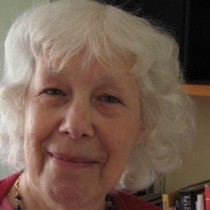
Myra Schneider’s most recent collections are What Women Want (Second Light Publications 2012) and The Door to Colour (Enitharmon 2014) Other publications include fiction for young people and books about personal writing – in particular Writing My Way Through Cancer, a fleshed-out journal with poems (Jessica Kingsley 2003) and the resource book Writing Your Self with John Killick (Continuum 2009). She is a tutor for The Poetry School in London and consultant to the Second Light Network for women poets. She has co-edited anthologies of work by contemporary women poets, most recently the acclaimed Her Wings of Glass (Second Light Publications 2014) She was shortlisted for a Forward prize in 2007.
Judge’s Report
From the 249 poems entered for the competition I put aside just over sixty to consider carefully. From these I produced a short list of 35 before making a final selection of 20 poems. During this process I reluctantly ruled out several poems with lively, poignant or thoughtful material in them which either hadn’t been fully transformed into poetry or else had dense detail which wasn’t taking the poem forward. By the time I’d picked out 20 poems I was very aware of the three which are the prize winners. Each of these poems is exceptional for the way it is shaped and the use of language.
Myra Schneider
—————————————————————————————————————————————
Poetry Space Competition 2015 – FULL RESULTS
I am pleased to announce the winners and commended poets in this year’s competition, selected by John Siddique. There were 322 entries and John read them all and send his thanks to everyone. Prizes of £250, £100 and £50 will go to the top three poets. All winners and commended poets will receive a copy of the prizewinners’s anthology which will comprise the top 23 poems chosen by John.
The Winners:
1st Prize : After the Storm. Ama Bolton (UK)
2nd Prize: Weeding. Corin Greaves (UK)
3rd Prize: I Know The Moon In All Her Phases. Victoria Gatehouse (UK)
Commended poems:
Ghosts. Susan Castillo (UK)
Storm Wren. Lizzie Ballagher (UK)
My Grandmother’s Angels. Victoria Gatehouse (UK)
Fingernails. Gail Dendy(South Africa)
The Challenge. Wendy Stern (UK)
Bramble Picking. David Mark Williams (UK)
Next Time I Will Smudge The Painted Sky. Jeanne Ellin (UK)
View From A High Window. Lizzie Ballagher (UK)
Struck. Helen Ford (UK)
Nocturnal. Joanne Key (UK)
Pieces of Suffering. Wendy Stern( UK)
Rainbow, Eleni Cay (UK)
Garden Birds. Gail Underwood (Cumbria, UK)
When I Think Of You. Michaela Ridgway (East Sussex, UK)
Flower Power. Sue Kindon (France)
I Never Trusted The Light Again. Beverley Ferguson (Bath, UK)
This Place. Eileen Harrison (The Netherlands)
In A Good Place. Pat Edwards (Wales, UK)
Early Morning Swim. Caroline Carver (Cornwall, UK)
Jesse Garon. Susan Castillo
————————————————————————————————————————————
Poetry Space will be publishing a prize-winners’ anthology in the late Autumn. In the meantime please scroll down to read the top three poems and find out a bit more about the poets.
Ist Prize
After the Storm
sunshine on late roses,
a queue of swallows on the wire,
the sky washed clean and spread to dry:
she finds his gloves in the hall-table drawer:
leather moulded to the curl of his palms.
The smell of him,
Left, right, she draws them on.
Key deep in one pocket, jar in the other,
she gathers boots, lead, walking stick.
The spaniel dances at the door.
On the hill the wind shakes leaves
and jackdaws out of the sycamores.
Her coat flaps flightless wings.
She climbs until the sea
rises into sight, a flake of silver.
The dog bounces through heather.
Clouds hurry into the east.
Her gloved hands unscrew the lid
and tilt the jar. The last of his dust
streams out on the wind.
Ama Bolton is a member of the Wells Fountain Poets. Her work has appeared in Magma, Obsessed with Pipework and Blithe Spirit and in several anthologies, and on-line at The Stare’s Nest.
What can I say? I’m surprised, thrilled, sopra la luna! I wrote this poem while walking in the Quantocks on a windy autumn day, and am delighted that it has found a home with Poetry Space.
John’s report
This poem is poignant and truthful. I love the images in it, the key in the pocket, the flapping coat. As soon as I read this poem I knew it was a winner. This is a poem that will stay with me, for all the best reasons. I feel like I met the people in this poem, and its story is delivered with grace and love.
——————————————————————————————————————————–
2nd Prize
Weeding
i used to feed the weeds
in our garden as a child
never understanding
the difference between
one petal and another
–
for the same reason
i picked her bony stem
and if we were ever to marry
i would lay fistful, upon fistful
of dandelions at the altar
and weeds would have their day
Corin is currently studying History and Philosophy at Bath Spa University. Once she graduates she hopes to teach. She has always had a passion for poetry, particularly the work of e e cummings and Anne Sexton, but only recently started seeing her own poems through to completion. Interested in writing intimate and honest poetry, this is the first poem Corin has shared and entered into a competition.
I am absolutely over the moon, especially because I don’t usually consider my poems worth finishing, let alone sharing. This has been a great confidence boost and I definitely intend to write more!
John’s report
I love simple clear writing, and I love humanity. This poem is full of both, as well as innocence, vulnerability and hope.; the things that are actually the real strengths of being human. This poem made me dance with joy.
————————————————————————————————————————————-
3rd Prize
I Know The Moon In All Her Phases
i Biopsy
Tonight, there’s a dressing taped to my breast.
I draw curtains and she’s there, scalpel-thin
behind glass, the shadowed part invisible
to the naked eye. Tomorrow, someone
in a white coat will stain and mount my cells,
adjust the focus on the microscope, sip tea
from the machine, discuss last night’s soaps,
search for an expanded nucleus, a distorted edge.
ii Stage IIB
The doctors are teaching me a new language –
invasive and nodes and metastases,
words I never needed to know before this
and I’m rolling them around my mouth,
their aftertaste of sickness and fear and now
she’s bloated up, her steroid-face taking over
the window as I open the fridge, the next dose
here between the Marmite and the Dairylee.
iii The Field
The earth is warm beneath my back;
behind closed lids, the rage and permanence
of the sun. If I opened them there would be
a plump-cheeked child threading daisy chains,
a man with a prayer in his eyes and the moon
hanging on the edge of this daytime sky;
I sense her slow spin, know her
to be part blown, like a dandelion clock.
Victoria Gatehouse lives in West Yorkshire. Her poems have appeared in magazines and anthologies including Mslexia, Magma, The Rialto, Poetry News, The Interpreter’s House, Prole, Furies and Her Wings of Glass. Competition placements include Ilkley, Mslexia, Poetry News Members’ Competition, Prole Laureate and The Interpreter’s House. Victoria is a member of the Hebden Bridge Bookcase Poets.
Poetry Space is a great platform for both new and established poets so I was thrilled to hear that two poems of mine had been placed in this competition. As an admirer of John Siddique’s work, it was incredibly self-affirming that he selected these poems. Looking forward to seeing the anthology!
John’s report
I love the narrative of this poem, which takes us through an experience which other lesser poets would have bludgeoned the reader with. The short line music brings an insistence to the images. From a nucleus through the language of cancer, through death and back to the everyday; this poem is an incredible journey, which I am thankful for.
—————————————————————————————————————————————-
John’s feedback on the commended poems will be published in the prize winners ‘ anthology. All that is left to say is a BIG THANK YOU from Poetry Space to everyone who entered the competition. All profits help Poetry Space to widen participation in poetry and bring more poets to recognition.
———————————————————————————————————————————
John Siddique
Described ‘as one of the best poets of our generation’ by novelist Bina Shah, John Siddique grew up in a household without books, however his discovery of his local library as a child began a lifelong love affair with words and literature. He started writing poetry in 1991 after reading the work of ee cummings, Walt Whitman and DH Lawrence.
John’s poems, essays and articles have appeared in Granta, The Guardian, Poetry Review, The Rialto and broadcast on BBC Radio 4. His poetry collections for adults include the critically acclaimed Recital (2009) and Full Blood (2011) and a book for children, Don’t Wear It On Your Head was shortlisted for the CLPE poetry award in 2007. Awards include a Hawthornden Fellowship, Honorary Creative Writing Fellow (Leicester University) and Fellowship of the Royal Society of Arts.
He has been a resident poet in a variety of venues including Manchester Art Gallery, HMYOI Wetherby and Los Angeles for the British Council. He is currently Royal Literary Fund Fellow at York St John University.
This was John’s address to poets when the competition was opened:
Dear poets
I’m really looking forward to receiving your poems for the 2015 Poetry Space Competition. I welcome your entries with an open heart and mind. It might be interesting if you would for a minute put yourself in your correspondent’s shoes, imagine you had been asked to judge this competition, what kind of poems would you want to see? One of the greatest mistakes I make with my writing at times, is where I lose sight of the reader. I’m not saying we should try and write to please that person, but perhaps we should write to please our own inner reader, not our writer. I have never thought of myself as a poet or writer, those are given titles, I am only a reader who occasionally finds himself thinking or feeling, ‘I’d love to read a book or a poem on…’ Yet on looking, it is as if there is a gap on the shelf, and no one has written the book I want to read. I take that always as a message from the universe or the muses telling me that it is my job then to write what needs to be written. So please send those poems, the ones that only you could write – essential and without cliché.
I’ll be honest with you, after being a reader and being on the planet as long as I have been I am not interested nor am likely to choose poetry that’s been designed to win a competition, there are many tricks poets have up their sleeves to make an impression, but I’m just John and I tend to be moved by literature which ascribes to human values and experience, that deals with our dignity and openness. Send me some real poetry that changes the world and life of the reader because it speaks of something essential about life, poetry that only you can bring to the page through your words, music and art, something that is a spark of life that will find a home in the heart of the reader.
I remember chatting with my friend, the late and sorely missed Glyn Hughes, about poems that become your friends. He would often discuss the dangers of coming from an ego place in our writing, and how his can manifest in so many ways, so that we don’t create something essential. Glyn would also talk about how the poems he loved were always with him; he could rely on them. If you have something you feel is like that up your sleeve, I’d love to see it. If you want to know more about my own writing ethos there is an artistic statement at www.johnsiddique.co.uk that pretty much tells you all you need to know, but I want to see your poems, your moments of life, written so that the spark still lives between the words and syllables.
With gratitude
John Siddique
—————————————————————————————————————————-
Poetry Space Competition 2014 – FULL RESULTS
Poetry Space Competition closed this year (its fifth) with 223 entries and these included submissions from across the UK and Ireland, South Africa, Canada, Australia, USA, France and Greece.
The winning poems were selected by Alison Brackenbury (photo right) who has provided a detailed report on her choices. (scroll down for this). We really appreciate Alison doing this. She did a fabulous job and in the sweltering summer heat as you’ll see from her report…
I would like to say a sincere thank you to everyone who entered and warm congratulations to the winners, the highly commended poets and the runners up. Twenty poems in all from nineteen poets will feature in the new anthology. For want of a better title I have decided to call this For want of a better word, the title of Glen Wilson’s winning poem.
Thanks are due too, to Johanna Boal who did a sterling job promoting the competition for Poetry Space and the growing number of friends of poetry space who handed out flyers and told their friends.
The top three winners are:
1st: Glen Wilson – For Want of a better word
2nd: Robin Muers – He’s settled in quite well
3rd: Angie Butler ‘Son, you’re 42’
Seven highly commended poems:
Margaret Eddershaw: Scattering
Martin Fuller: Bullet Points
Claire Williamson: She thought her father was a butcher
Patrick Lodge: C’an Freixa
Susan Latimer: Tea Time Truce
Kay Cotton: The Mason
Gail Dendy: The edge of the world
Ten more for publication:
Di Coffey: Hands
Elaine Taylor: Uncle Ruby
Derek Stanley: Out Patience
Jo Waterworth: Widdershins
Roger Caldwell: Going to Coventry
David Lukens: A Circular Life
Anthony Watts: The Bright Room
Denni Turp: Can You Hear Me? Are You Still There?
Ama Bolton: Unfairy Tale
Ama Bolton: Brown Sugar
————————————————————————————————————————————————————–
Glen Wilson, the winner of Poetry Space Competition had this to say:
I was thrilled when I got the phone call to say that I had won the Poetry Space Competition. It is always great to hear that your work has been enjoyed by another and judged worthy of winning a prize (my first!) as well has made it incredibly encouraging. I am also looking forward to seeing the anthology come out in the future as well. Thanks Poetry Space!
For want of a better word
I wrote only one note today;
it said remember to pick up some milk.
The Smiths always forget the milk.
They hold then use me roughly,
though I suppose I can’t complain
I do have regular employment.
I don’t work for a calligrapher, dancing
elegantly on certificates or a screenwriter
creating Oscar winning scripts.
Those pens have their own velvet homes
while I have been known to be abandoned
in untold places like a common pencil,
wedged behind his wax leaking ear,
my end chewed by her cherry
red lips as she looks at the crossword.
I remember the year spent lost
down the back of the sofa, ink tears
staining loose change and dust.
Eventually they found me again
as Mrs Smith scribbled a phone number down
and smiling handed it to the milkman.
Later I watch Mr Smith pick up another pen
(a biro!) scribble out a letter and leave
it on the bedside table.
All I can see from the dresser are the words
trust and goodbye. She cries as she reads
these words and all the words between.
I hope that someday she might use me
to pour out her thoughts, because every pen
wants to leave an epigram before it dries.
Glen Wilson
Glen Wilson lives in Portadown, Co Armagh with his wife Rhonda and children Sian and Cain. He works as a Civil Servant in Belfast in Statistics and Research.
Glen was part of the Millennium Court Arts Centre Writing group in Portadown for 5 years. His work has been published in Black Mountain Review, Iota, A New Ulster and The Interpreters House. In 2007 He was short listed for the Strokestown Poetry Festival’s Satire Prize. His influences include Leonard Cohen, Seamus Heaney, George Szirtes, Pablo Neruda, and his Christian faith.
He is currently working on his first collection of poetry.
—————————————————————————————————————————————————————
When told of his prize Robin Muers had this to say:
Really pleased, especially so because this particular poem had been through very many previous versions and major alterations.
He’s settled-in quite well,
they’d like to think. Today requires
a sun hat, wise ones say. I’m placed
beside a healthy drink, then left
to find my own excitement, like:
a crocodile stalks the patio table,
grabs a wine glass in its teeth.
(My finger’s arthritically bent
to make the light for croc’s bright eye.)
Let’s have some other guests! A bunch
of terracotta frogs in Afro wigs
– seductive scent deployed! (Official
description: pots of petunia.)
Why these games? Because it’s far
too ‘sensible’ in here: the hand brake
must be ‘on’ both sides of chairs
– all that. I’ve had enough. But look:
above our Silver-Safe Community
a gang of swifts tears round the sky.
They’re calling me to pass the ball
through fading light. I leave with them.
Robin Muers
Robin Muers studied history at university and subsequently qualified as a solicitor. He worked in various jobs in local government and the public sector before retiring some years ago. Although always interested in contemporary poetry, he did not make many attempts to write his own until the current century was well under way. If he wants a poetry book to take on a train journey, a John Burnside collection is most likely to be picked off the shelf. Robin enters a number of poetry competitions – partly because that gives an incentive to ‘finish and polish’.
——————————————————————————————————————————————————————
Angie Butler had this to say:
Finding Poetryspace has made a huge difference to my life.
The daily time to write for the Photo and Poetry Competition allowed me to voice every emotion and to fend off depression and access acceptance and healing.
I would write and rewrite my emotions. I would have hope that my voice might be heard by an uninvolved stranger. I was inspired to run a competition for other writers to feel the comfort and joy I myself had received.
Son, you’re 42
The chocolate licked off.
The conquest done.
Now on to another.
A different one.
To woo, to ravage.
To make my own.
Then leave.
Go home.
Go home alone.
Angie Butler
Angie Butler is a teacher who has always written. Published in several books and magazines, she has researched Land Girls in WW2 and created books and cards to support her work. A founder member of The Penzance Literary Festival, she holds workshops for all ages and abilities. Her story ‘Bodelva’ was performed by the Bournmouth Symphony Orchestra and 600 children, celebrating the 10th anniversary of The Eden Project in Cornwall. She was honoured as Citizen of the Year 2012 and Cornish Woman of the Year 2014 in Penzance, for her help in community projects.
—————————————————————————————————————————————————————
Copyright of all poems printed here remains with their authors – please don’t reproduce without permission.
————————————————————————————————————————————————————-
Honestly’…
Competition Report for the Poetry Space Competition, 2014
Poems must be convincing. I do not believe that they always need to be honest. But I think that an account of judging them should be. It is possible to develop rather grand theories about judging poetry. (I have one or two myself!) But here is an honest account of how my chosen twenty poems shook themselves free from the invitingly fat pile of entries for the Poetry Space Competition, in the summer of 2014.
Throughout a couple of blazing weeks in July, sustained by blinds, choc ices, and two supportive cats, I read all of the poems, several times. I pored over my ‘Yes’, ‘No’, and ‘Maybe?’ files repeatedly. But the poems which first captivated, and moved me the most, continued to do so. My affection for them did not waver with the blinds, or melt with the ice cream.
What did I most admire, about this competition’s three (very varied) prizewinners? All of these poems had depth. Glen Wilson’s winning poem, ‘For want of a better word’, has a story which enthralled me. I will not reveal its twists! After clever flirtations with humour and cliché, this poem swiftly turns into an account of love, with an ending of real pathos.
Many poems in competitions tackle the subject of age. But the winner of the second prize, Robin Muers’s ‘He’s settled in quite well,’ is one of the best and most surprising I have ever read on this theme. Its speaker, ‘placed […] then left’ in a wheelchair, is mentally as quick as the swifts in the summer skies above him.
It takes courage to enter a very short poem for a competition. I am delighted that Angie Butler did so. ‘Son, you’re 42!’, the third prizewinner, has only nine lines. But it places the weight of a whole lifetime’s mistakes behind its closing rhyme.
Was it difficult to thin out the remaining pile into seven Highly Commended, and ten poems for the competition anthology? Honestly, yes. Many poems were re-read, then put back with a sigh.
I felt that all the Commended poems had exceptional force, in very different ways. Margaret Eddershaw’s ‘Scattering’ arrested me by its final line. Martin Fuller’s ‘Bullet Points’ was both absorbing and surprising. Physical vividness and emotional mystery marked Claire Williamson’s ‘She thought her father was a butcher’. ‘C’an Freixa’, by Patrick Lodge, achieved descriptions of irresistible beauty. I found ‘Tea Time Truce’, by Susan Latimer, uncompromisingly moving. Kay Cotton’s ‘The mason’ carefully deepened into primitive power. ‘The edge of the world’, by Gail Dendy, set the whole force of its length behind a bravely expansive ending.
From my selection of poems for the anthology, I admire the haunting scents of Di Coffey’s poem ‘Hands’, and the often disturbing detail of Elaine Taylor’s ‘Uncle Ruby’. I think many readers will recognise the quiet rhythmic truth of Derek Stanley’s ‘Out Patience’, and the child-like sensuality of Jo Waterworth’s ‘Widdershins’. I am haunted by the unfolding sadness of Roger Caldwell’s ‘Going to Coventry’, shocked and impressed by the tough heroine of David Lukens’ ‘A circular life’. Virtual life is vivid in Anthony Watts’ The Bright Room’; an intricate music in Denni Turp’s sestina, ‘Can You Hear Me? Are You Still There?’ Finally, I greatly relished the crisp couplets of ‘Unfairy Tale’, and the deft humour of ‘Brown Sugar’. The judging was, of course, completely anonymous. When I learnt that both poems were by Ama Bolton, I still felt that these two skilful poems deserved their placing on their own, very different merits.
Why did some poems not escape from my ‘Maybe?’ folder. There were poems, excellent in parts, which showed flaws which I often see in my own writing. Some poems started strongly, then tailed off. Others had arresting diction, yet a lack of rhythmic lift, like a beautiful skin with no muscles to make it move. But there were many poems which did work well, and which I would very much have liked to smuggle into my ‘Yes!’ folder.
I have had the privilege of judging many competitions, both national and local. I think that Poetry Space is one of the most generous I have encountered. Many contests have only a few winning poems, which do not appear in print. Poetry Space has ten winners, including the Highly Commended, and publishes twenty of its entries. Statistically, you have an exceptionally good chance of being rewarded for entering this competition!
The standard of entries was high this year, and a significant number of the unplaced poems might well have been favoured by a different judge. (Poetry judging is not an exact science.) So, to all who entered, my thanks for letting me read your varied and thought-provoking poems. And please do enter again. Honestly,
2015 could be the year you win the Poetry Space Competition!
Alison Brackenbury
The top three will receive prizes of £250, £100 and £50 respectively and complimentary copies of the anthology.
Twenty poems in all will be published in the prizewinner’s anthology.

